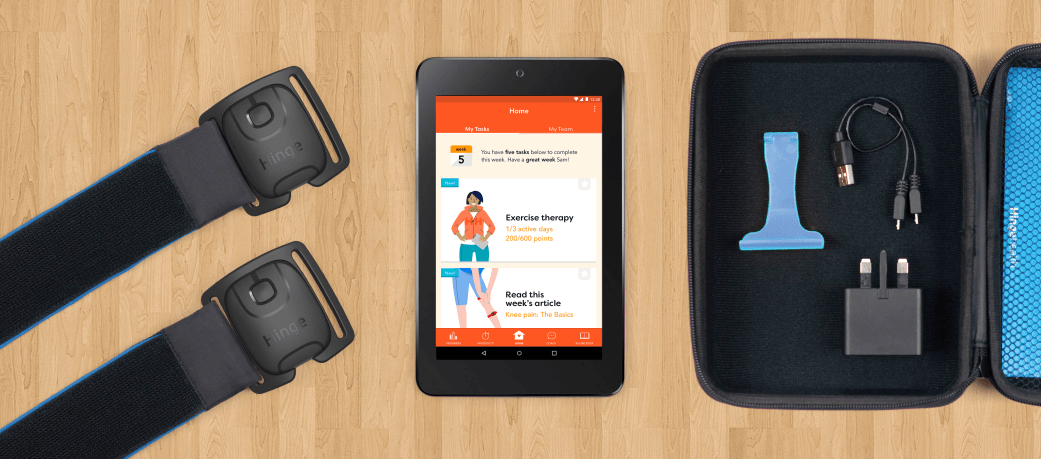
The basic premise is that there is plenty of existing research to show how best to treat MSK disorders, but existing healthcare systems don’t do a very good job at delivering best practice, either because of cost and the way it is funded or for other systematic reasons, especially for chronic conditions. The result is an over tendency to fall back on the use of opioid-based painkillers or surgery, with sub-optimal results.
Or, put more broadly, health care systems generally are built to deliver acute care quite well (e.g. if you break a bone, it can fix that), but fall short when it comes to the continuous high-touch care required for chronic medical conditions. Conversely, chronic conditions are also where the majority of total medical spending is deployed.
Hinge Health believes the answer is to use technology to deliver “Digital Care Pathways” for MSK conditions and reckons that, two years in, the startup now has the evidence to prove it is working. Having accumulated data on over 1,000 patients to-date, Hinge Health says
it has demonstrated a 55 per cent improvement in both chronic lower back pain and knee pain, while avoiding 60 per cent of surgeries.
Perhaps more impressive, Hinge Health co-founder and CEO Daniel Perez tells me that the company is seeing 80 per cent adherence through 12 weeks with the program, which he says is practically unheard of. That goes some way towards addressing my initial scepticism around delivering a program remotely that includes physical therapy and requires the patient to be disciplined and remain motivated enough for it to be effective.
It is also why the company has built “behavioral health” into its platform, combining health coaching, peer support via other people going through the program, and Cognitive Behavioral Therapy if pre-screening shows that a patient is at risk of not following through due to, for example, a fear of making their condition worse by moving an affected joint.
In addition, I’m told the startup has recently completed a Randomized Control Trial, the same type of trial drug companies use to prove efficacy of their products, and will publish the results later this year. All of which hasn’t gone unnoticed by investors.
Hinge Health is announcing $8 million in Series A funding, in a round led by Atomico, the London-based VC firm co-founded by Skype founder Niklas Zennstrom. Existing seed investors, Eleven Two Capital, The Vertical Group, and SwiftKey’s Jon Reynolds, also participated, while I understand recently promoted Partner Carolina Brochado led the investment from Atomico’s side and will be joining the Hinge Health board.
Related to this, Hinge Health’s business model is also worth noting. Given the way healthcare is funded in the U.S., the startup is targeting self-insured employers and health plans, with the pitch being that its platform can significantly reduce medical costs associated with chronic MSK conditions. In the U.S., over 75 per cent of costs associated with MSK can be attributed to drugs and surgery, apparently.
Zooming out a lot further, the much bigger vision for Hinge Health — Atomico likes to back big ideas, after all — is what Perez describes as something akin to a “digital hospital”. The idea is that, once the company has proven that chronic healthcare can better scale and be delivered digitally, starting with MSK disorders, Hinge Health will expand into other conditions by using technology to continuously digitize an array of “evidence-based pathways”.
[Source:-techcrunch]



